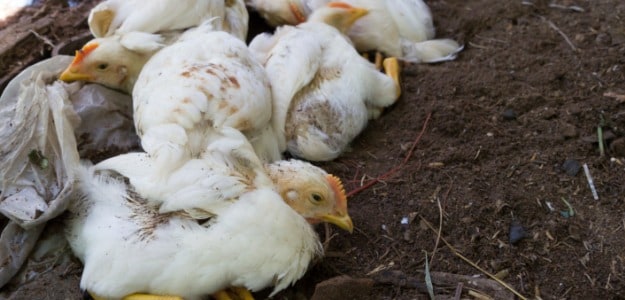Taiwan's agriculture authority confirmed Sunday that the strain of bird flu found in a goose breeding facility in the Chiayi County was H5N8, which is not considered to be highly pathogenic. This follows the discovery of the highly pathogenic H5N2 strain of the bird flu virus at a chicken farm in the southern Taiwanese county of Pingtung. Agriculture council chief, Chen Bao-ji, said that this was the first time that the H5N8 strain has been detected in Taiwan, adding that it was suspected to have been spread by migratory birds, according to a Xinhua report. The Chiayi County government began culling more than 1,500 geese at the farm Sunday and a ban on the movement of poultry in Pingtung, Tainan and Yunlin counties was imposed. The culling of 120,000 chickens on a farm in Pingtung was completed Sunday morning after poultry was found to be infected with the H5N2 strain on Friday.
Avian influenza, known informally as avian flu or bird flu, refers to influenza caused by viruses adapted to birds. It has caused a global concern because of its possible transmission to humans and the threat of a pandemic if it mutates to a form that can be easily passed from birds to humans and then, from human to human.








